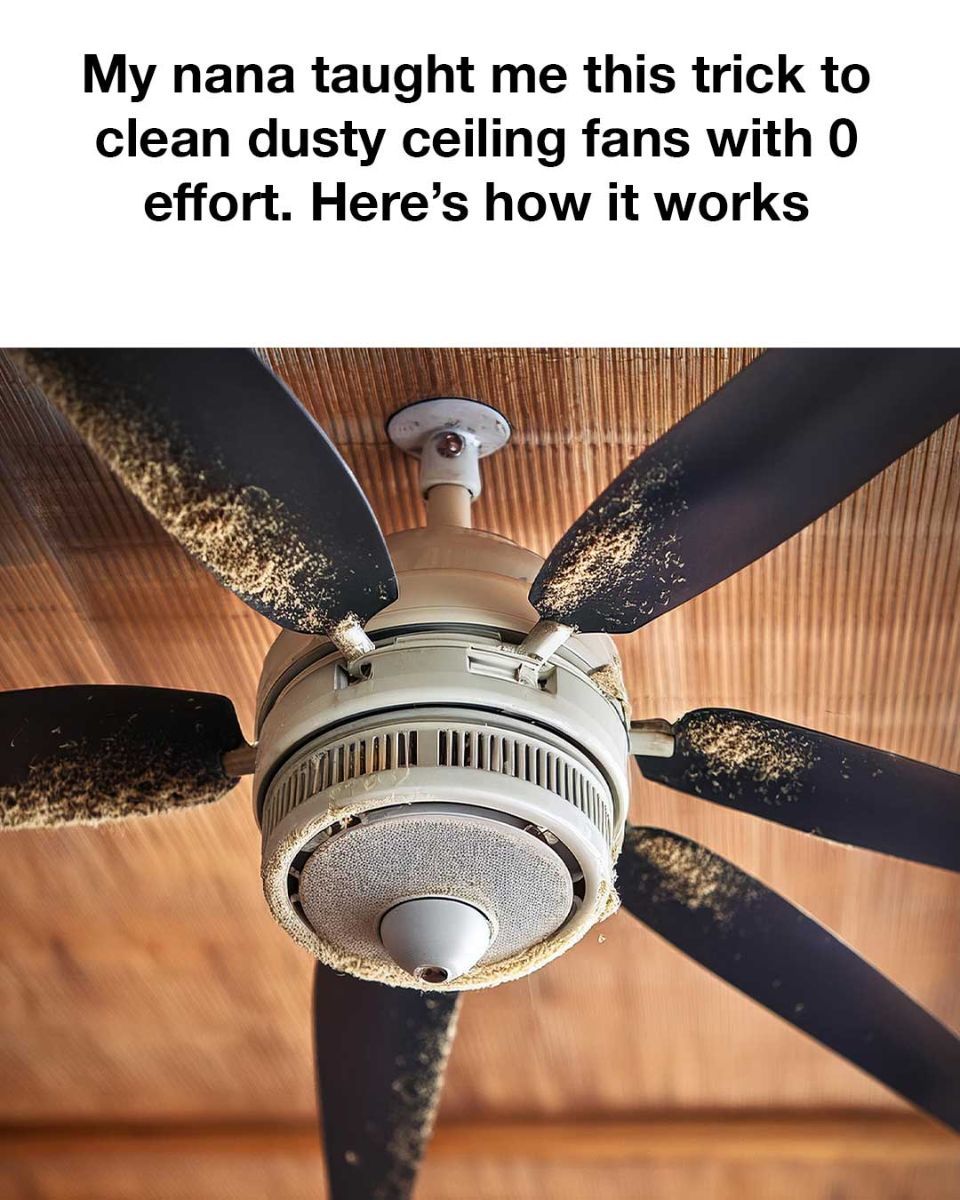Ceiling fans are fantastic for keeping our homes cool and comfortable, but cleaning them? Not so much. Dust and dirt easily accumulate on fan blades, creating a layer of grime that’s not only unsightly but can also lead to poor air quality.
Like many people, I used to struggle with cleaning my ceiling fans until my Nana shared a trick that made the process almost effortless. Now, I’m passing on this simple yet genius method to you.
Why Dusty Ceiling Fans Need Attention
Before we get into the trick, let’s talk about why it’s essential to clean those ceiling fans regularly. Dust and allergens tend to accumulate on fan blades over time. When the fan spins, these particles are dispersed throughout the room, which can aggravate allergies and respiratory issues. Regular cleaning is necessary to maintain a healthy living environment and ensure that your fan operates efficiently.
The Struggle with Traditional Cleaning Methods
Most people try to clean their ceiling fans by using a duster or a cloth, often leading to dust falling onto furniture, floors, or even themselves. This method usually requires standing on a ladder or chair, which can be precarious. Additionally, dusting without any protection tends to scatter dust everywhere, making the cleanup more tedious than it needs to be. This is where Nana’s trick comes in handy.
Nana’s Trick for Cleaning Ceiling Fans
The trick Nana taught me is incredibly simple and requires just a couple of household items: an old pillowcase and some cleaning solution (or even plain water). Here’s how it works:
What You’ll Need:
An old pillowcase (one you don’t mind getting dirty)
A step stool or ladder (if necessary)
A spray bottle with water or a mild cleaning solution (optional)
Step-by-Step Guide:
Prepare Your Pillowcase: Take an old pillowcase and spray a little water or cleaning solution inside it. You don’t want it to be dripping wet, just slightly damp to help catch dust. The dampness helps attract the dust rather than letting it fly into the air.
Position Yourself Safely: If your ceiling fan is too high to reach comfortably, use a step stool or a ladder. Make sure it’s stable and positioned securely to avoid accidents.

